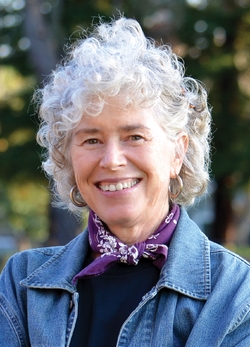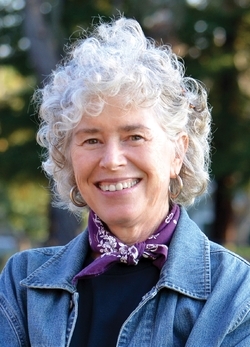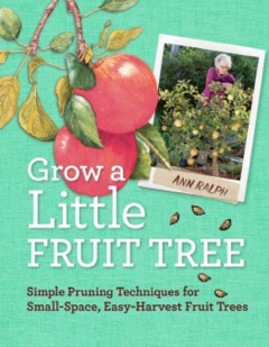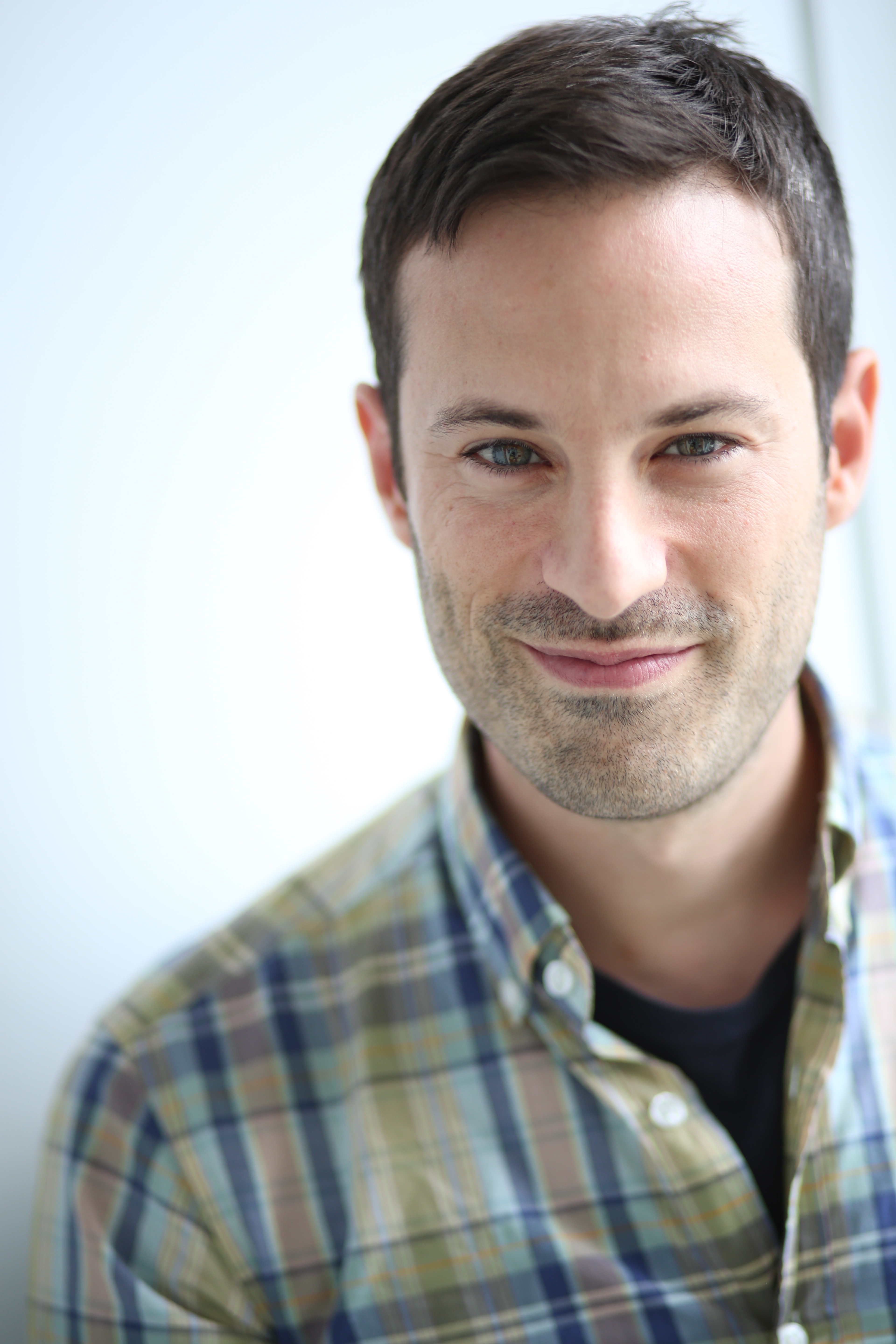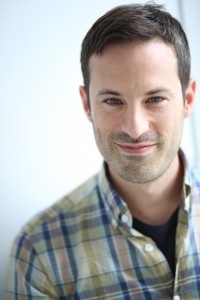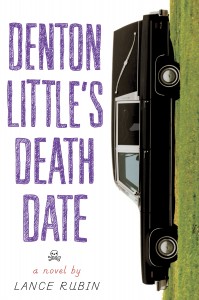We first met Ann Ralph when she won our Pitchapalooza with one of the greatest elevator pitches we’ve ever heard: The Elements of Style for fruit trees. It made total sense even as it was counterintuitive. It communicated something so clearly, with such economy, intelligence and style. She also presented it in such a smart, relaxed, fun and yet information-packed way you couldn’t help but sit up and pay attention. Plus, who doesn’t love a great fruit tree? So now that her book Grow a Little Fruit Tree: Simple Pruning Techniques for Small-Space, Easy Harvest Fruit Trees is out, we thought we’d pick her brain and find out exactly how she did it.
To read this interview on the Huffington Post, click here.
The Book Doctors: How is your garden?
Ann Ralph: The garden is thirsty, but so far, so good. These dry winters are unusual and scary. Long, dry summers are nothing new. In most of California rain stops in May and won’t start again until November. I planted with this in mind. The plants on a hot bank behind my house do entirely without summer water. The roadside tree trimmers left behind a huge pile of chipped prunings last fall. This stuff is gold to me. I applied it as a deep mulch around my fruit trees and ornamentals. Mulch helps tremendously with transpiration. I water my established fruit trees only about once a month. Mulch improves soil quality and sequesters carbon, too.
TBD: How did you get started as a writer?
AR: Nursery work was meant to be a placeholder until I got a real job. I got waylaid in a composition class on the way to a respectable career, then abandoned pretense for the work I liked, low pay, the outdoors, a cavalcade of interesting questions, great people, and writing in my off hours.
TBD: What are some of your favorite books and why?
AR: However beautifully rendered, nonfiction is constrained by facts. I get more sustenance from the truth in fiction: I think of the Salman Rushdie character who cooks grievances into her chutneys. I wish everyone would read All the King’s Men, A Passage to India, and A Place on Earth. When our president quotes Marilynne Robinson, I feel sure we’ll be okay.
TBD: How did you get started as a fruit tree enthusiast? What are some of your favorite fruit trees and why?
AR: I grew up in the San Joaquin Valley. We were awash in fresh fruit all year long. I went out the front door for Meyer lemons. Neighbors left bags of nectarines on the front porch. Teachers, like my dad, graded and weighed peaches for Del Monte in the summertime. He brought home leftover lug boxes full of fruit. My mother canned peaches and apricots to tide us over until summer came again. I had no idea how good we had it until I left California for New York. This last weekend I visited friends in Ripon and came home with a huge box of tree-ripe grapefruit. There is never too much grapefruit at my house.
TBD: What were some of the joys and difficulties of taking your passion and turning it into a book?
AR: I had a good idea about what made fruit trees confusing and difficult for people, and what was missing from existing books on the subject. Storey asked me to double the content. How right they were! Every step in the process led to a better book. The photography was more complicated than I expected it to be. Marion Brenner was generous with her time and up for anything. The trees, weather, light, and backgrounds weren’t as cooperative. The photos took another year, the design a third. I sometimes despaired that I’d ever see the thing in print.
TBD: You’ve gotten some wonderful reviews. What did you do to promote and market the book?
AR: Storey Publishing has reach into the book business I could never have managed on my own. My sister has been a buyer for independent bookstores for thirty-five years. She drilled into me a sense of my shared responsibility for the book’s promotion. I knew my audience. I also knew I had a book that people needed and would want to buy. I have great garden connections from Berkeley Horticultural Nursery. I’m easily evangelical on the subject of fruit trees.
TBD: The environment is going through some terrible times. What do you think are some solutions to bring back a balance with nature?
AR: Humans wield a lot of clout in the natural world. The organics now in markets are there because we wanted to buy them. We can look to decisions we make everyday, regarding packaging for one. We’re drowning in plastic. Recycling is better than nothing, I suppose, but recycling plastics is a dirty business. I make yogurt at home. Its deliciousness aside, this small action by one person eliminates a need for hundreds of plastic containers. The environment doesn’t exist apart from us. We’re in the thick of it. For good or ill, we build it as we go.
TBD: How did you get a book deal?
AR: The Book Doctors pulled my name out of a hat at a Pitchapalooza at Book Passage in Corte Madera. They liked my pitch. I shopped a proposal around to several publishers with interest but without success, always on the heels of another fruit book. Arielle took the idea to Storey Publishing. I strengthened the proposal based on information from The Essential Guide to Getting Your Book Published. I’m sure that made the difference. I’m not just saying this because the Book Doctors happen to be asking the question. It’s true.
TBD: What advice do you have for fruit tree growers?
AR: Keep your fruit trees small enough to manage. I wish I could take credit for my favorite pruning advice. It came from a UC Davis seminar, “If you don’t know what to do, cut some stuff out.” Fruit trees are forgiving. If you goof it up, they give you another chance.
TBD: What advice do you have for writers?
AR: Let’s leave fruit advice to me and writing advice to Anne Lamott.
Ann Ralph is the author of Grow a Little Fruit Tree: Simple Pruning Techniques for Small-Space, Easy Harvest Fruit Trees. Publisher’s Weekly called the book “a thrilling read for the backyard farmer.” She is a fruit tree specialist with 20 years of nursery experience. She lives in the Sierra Foothills near Jackson, California.
Arielle Eckstut and David Henry Sterry are co-founders of The Book Doctors, a company that has helped countless authors get their books published. They are also co-authors of The Essential Guide to Getting Your Book Published: How To Write It, Sell It, and Market It… Successfully (Workman, June 2015). They are also book editors, and between them they have authored 25 books, and appeared on National Public Radio, the London Times, and the front cover of the Sunday New York Times Book Review.

